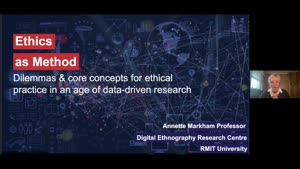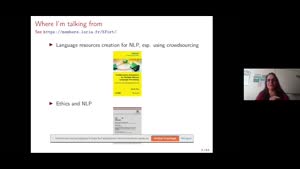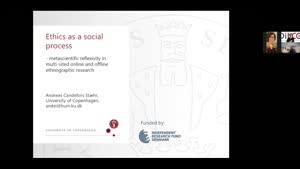Emoji as paralanguage: modelling emoji-text relations and exploring ambient affiliation in social media discourse: DiLCo Lecture Series 2023 (11 May) - Michele Zappavigna - University of Hamburg
- Lecture2Go
- Catalog
- F.5 - Geisteswissenschaften
- Sprache, Literatur, Medien (SLM I + II)
- Digital language variation in context (DiLCo)
Catalog
2447 Views
11.05.2023
Emoji as paralanguage: modelling emoji-text relations and exploring ambient affiliation in social media discourse: DiLCo Lecture Series 2023 (11 May)
Michele Zappavigna is Associate Professor in the School of Arts and Media at the University of New South Wales. Her major research interest is in exploring ambient affiliation in the discourse of social media using social semiotic, multimodal, and corpus-based methods. She is a co-editor of the journal Visual Communication. Key books include Searchable Talk: Hashtags and Social Media Metadiscourse (2018) and Discourse of Twitter and Social Media (2012). Recent co-authored books include Researching the Language of Social Media (2014; 2022), Modelling Paralanguage Using Systemic Functional Semiotics (2021), and Emoji and Social Media Paralanguages (Cambridge University Press, forthcoming).
This presentation introduces a social semiotic framework for exploring the intermodal functions of emoji in digital discourse. The framework models emoji as a form of paralanguage, and as such, highly dependent on their linguistic co-text for making meaning. Developed via corpus-based studies of digital messaging and social media discourse (Logi & Zappavigna, 2021; Zappavigna & Logi, 2021), the framework is soon to be encapsulated as Zappavigna and Logi (forthcoming), and draws on emerging social semiotic work on paralanguage (Ngo et al., 2021). It adopts a metafunctional approach to three kinds of emoji-text convergence whereby emoji make meaning with their co-text: ideational concurrence, interpersonal resonance, and textual synchronicity. The presentation will provide an overview of the systems that have been created to encapsulate each of these three patterns of relations. It will also explore how the framework can be used to understand ambient affiliation practices in social media discourse, drawing on Twitter and TikTok comment corpora.
DiLCo Lecture Series 2023 aims to showcase cutting edge international research on digitally language and communication by both senior and younger researchers from across the world. We wish to present research that explores digital language and communication by drawing on key concepts and topics in socio-cultural linguistics, such as community, context, identity, mediated interaction, multimodality, and linguistic change. We particularly welcome presentations of innovative methods that cut across traditional disciplinary boundaries.
---
DiLCo (‘Digital language variation in context’) is a 3-year international research network initiated in 2021 at the University of Hamburg. The network brings together researchers from Europe and USA with expertise in computational, interactional, and ethnographic approaches to digital language and linguistics. It aims to provide a platform for the development of interdisciplinary ideas in digital language and communication research, and for early-career capacity building.
---
DiLCo (‘Digital language variation in context’) is a 3-year international research network initiated in 2021 at the University of Hamburg. The network brings together researchers from Europe and USA with expertise in computational, interactional, and ethnographic approaches to digital language and linguistics. It aims to provide a platform for the development of interdisciplinary ideas in digital language and communication research, and for early-career capacity building.
Technical support
Please click on the link bellow and then fill out the required fields to contact our Support Team!
RRZ Support Link

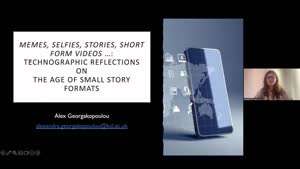
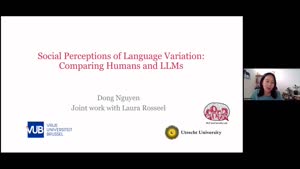
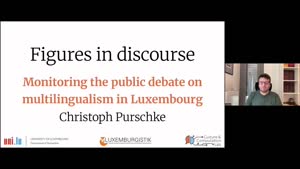
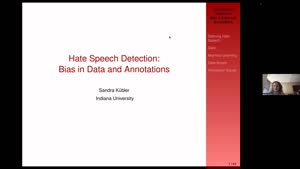
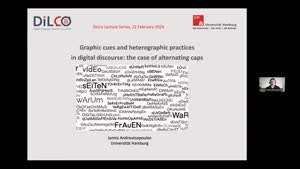
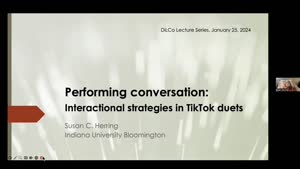
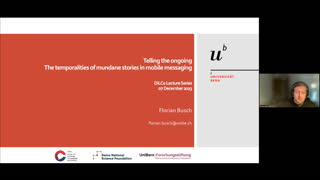
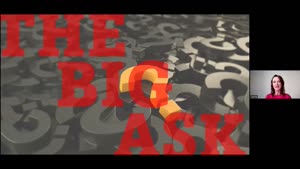
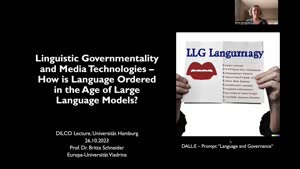
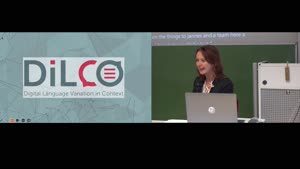
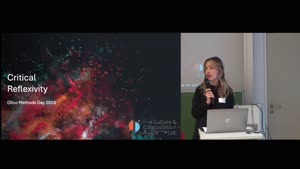
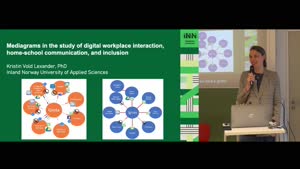
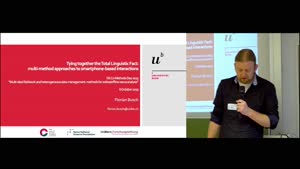
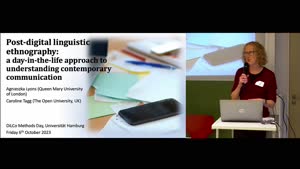
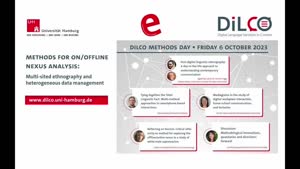
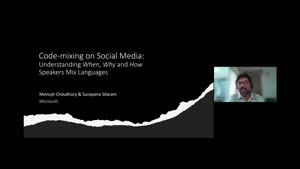
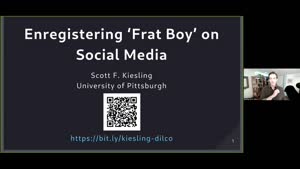
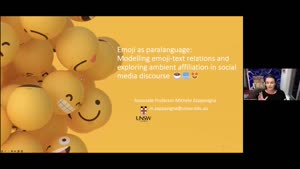
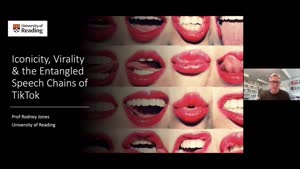
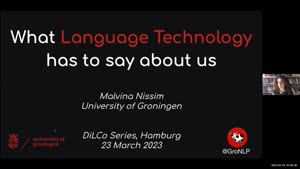
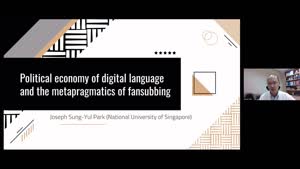
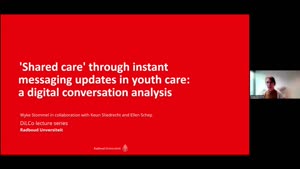
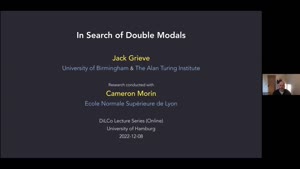
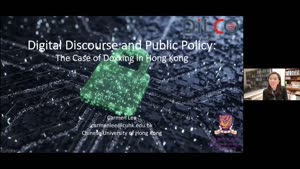
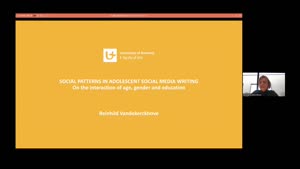
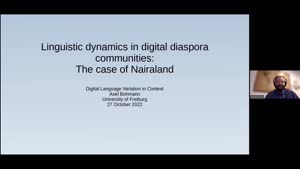
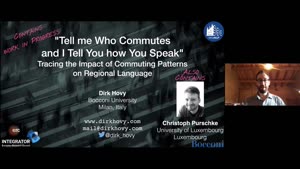
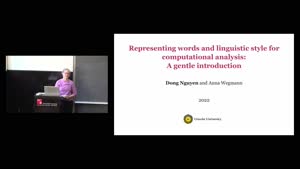
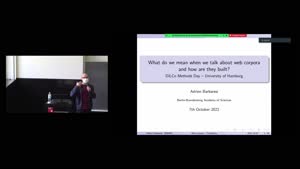
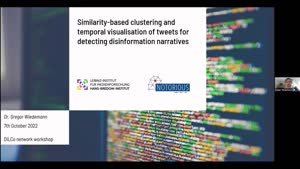
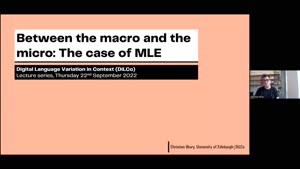
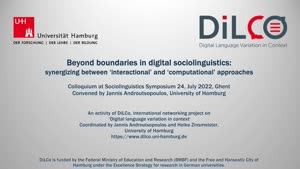
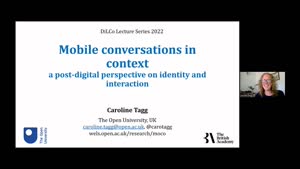
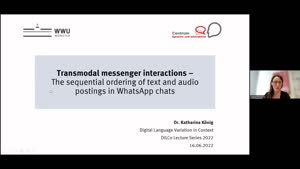
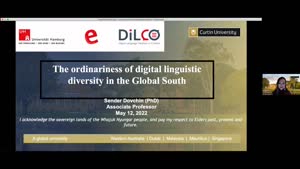
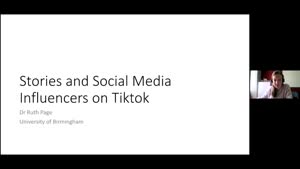
![Thumbnail - Graphic Prosody and political discourse on Greek Reddit [Presentation in Greek]](https://lecture2go.uni-hamburg.de/images/00.000_video-61074_2022-03-30_18-30_m.jpg?lastmodified=1663761108652)
